-
×
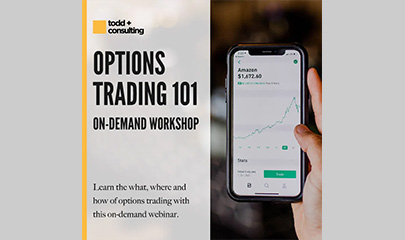 Options Trading Workshop On Demand By Affordable Financial Education
1 × $69,00
Options Trading Workshop On Demand By Affordable Financial Education
1 × $69,00 -
×
 Portfolio Investing By Ron Bertino
1 × $54,00
Portfolio Investing By Ron Bertino
1 × $54,00 -
×
 100K Offer System 2.0 By Kathryn Porritt
1 × $39,00
100K Offer System 2.0 By Kathryn Porritt
1 × $39,00 -
×
 The SPY Beginners Flys And Calendars Deep Dive 2023 By Dan Sheridan And Sheridan Options Mentoring
1 × $31,00
The SPY Beginners Flys And Calendars Deep Dive 2023 By Dan Sheridan And Sheridan Options Mentoring
1 × $31,00 -
×
 Ecommerce merchandising By Naheed Adil
1 × $39,00
Ecommerce merchandising By Naheed Adil
1 × $39,00 -
×
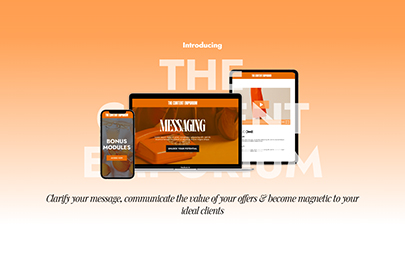 Messaging Program By Phoebe Kuhn - The Content Emporium
1 × $209,00
Messaging Program By Phoebe Kuhn - The Content Emporium
1 × $209,00 -
×
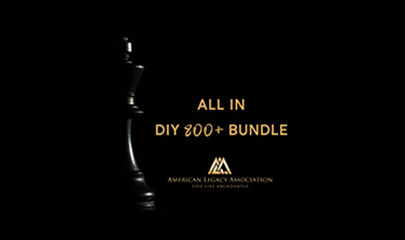 ALA All In DIY 800 Plus Credit Restoration Bundle By Myala - American Legacy Association
1 × $101,00
ALA All In DIY 800 Plus Credit Restoration Bundle By Myala - American Legacy Association
1 × $101,00 -
×
 Trend-Rev Block And Ea Forex System - No Mt4 Indicator - By Ifxsuccess
1 × $69,00
Trend-Rev Block And Ea Forex System - No Mt4 Indicator - By Ifxsuccess
1 × $69,00 -
×
 Girlfriend Formula by 60 Years of Challenge
1 × $5,00
Girlfriend Formula by 60 Years of Challenge
1 × $5,00 -
×
 Training the Electric/Magnetic Lines of Force with Movement By Sixty Skills
1 × $15,00
Training the Electric/Magnetic Lines of Force with Movement By Sixty Skills
1 × $15,00 -
×
 Natural Instinct Method - RSD Nation
1 × $5,00
Natural Instinct Method - RSD Nation
1 × $5,00 -
×
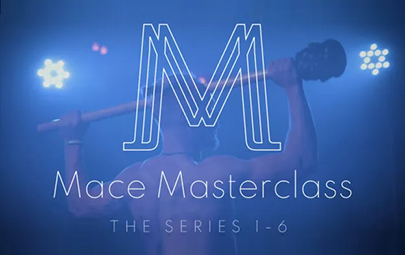 Mace Masterclass Series 1-6 By Harbert - Dutch Flow Academy
1 × $78,00
Mace Masterclass Series 1-6 By Harbert - Dutch Flow Academy
1 × $78,00 -
×
 Opening Up: A Guide To Creating And Sustaining Open Relationships by Tristan Taormino
1 × $5,00
Opening Up: A Guide To Creating And Sustaining Open Relationships by Tristan Taormino
1 × $5,00 -
×
 Ignite Your Discover Traffic By Tony Hill And Jesse Cunningham
1 × $23,00
Ignite Your Discover Traffic By Tony Hill And Jesse Cunningham
1 × $23,00 -
×
 Effortless Attraction Playbook: The secret model that a nerdy college guy discovered to get unlimited sex By Superman
1 × $15,00
Effortless Attraction Playbook: The secret model that a nerdy college guy discovered to get unlimited sex By Superman
1 × $15,00 -
×
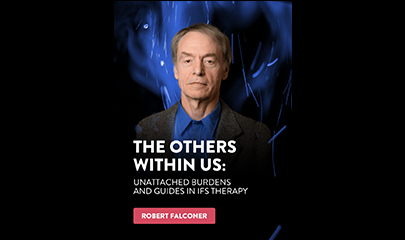 The Others Within Us - Unattached Burdens and Guides in IFS Therapy By Robert Falconer
1 × $69,00
The Others Within Us - Unattached Burdens and Guides in IFS Therapy By Robert Falconer
1 × $69,00 -
×
 Writing Great Chapters By Daniel David Wallace
1 × $23,00
Writing Great Chapters By Daniel David Wallace
1 × $23,00 -
×
 Opthink By Everyday Spy
1 × $69,00
Opthink By Everyday Spy
1 × $69,00 -
×
 Hedged Strategy Series in Volatile Markets All 4 By Dan Sheridan
1 × $15,00
Hedged Strategy Series in Volatile Markets All 4 By Dan Sheridan
1 × $15,00 -
×
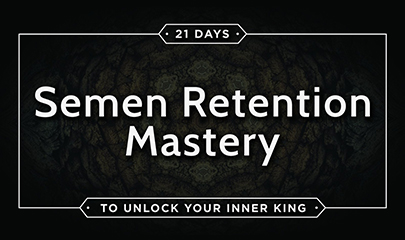 Semen Retention Mastery By Taylor Johnson
1 × $23,00
Semen Retention Mastery By Taylor Johnson
1 × $23,00 -
×
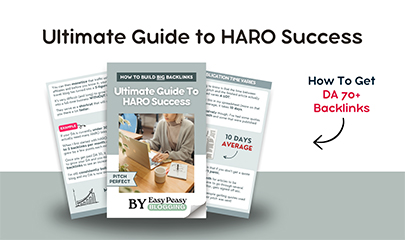 Ultimate Guide to HARO Success By Easy Peasy Blogging
1 × $15,00
Ultimate Guide to HARO Success By Easy Peasy Blogging
1 × $15,00 -
×
 Master Collection | Medium Format Sky Library by Gary Martin
1 × $8,00
Master Collection | Medium Format Sky Library by Gary Martin
1 × $8,00 -
×
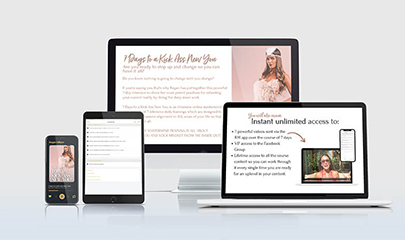 7 Days To A Kick Ass New You By Regan Hillyer
1 × $85,00
7 Days To A Kick Ass New You By Regan Hillyer
1 × $85,00 -
×
 Cultural Literacy for Religion: Everything the Well-Educated Person Should Know By Mark Berkson
1 × $5,00
Cultural Literacy for Religion: Everything the Well-Educated Person Should Know By Mark Berkson
1 × $5,00 -
×
 The Holy Land Revealed By Jodi Magness
1 × $5,00
The Holy Land Revealed By Jodi Magness
1 × $5,00 -
×
 Applied Hypertrophy Optimization By J3 University
1 × $109,00
Applied Hypertrophy Optimization By J3 University
1 × $109,00 -
×
 Orgasmic And Erotic Hypnosis Course 2023 By David Mears
1 × $186,00
Orgasmic And Erotic Hypnosis Course 2023 By David Mears
1 × $186,00 -
×
 Sexual Magnetism Course By Charisma School
1 × $39,00
Sexual Magnetism Course By Charisma School
1 × $39,00 -
×
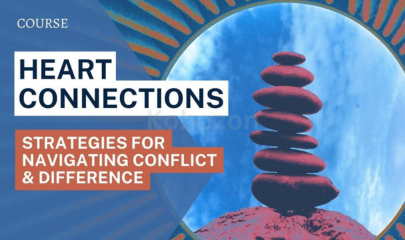 Heart Connections: Strategies for Navigating Conflict & Difference - Collection By Kim Loh
1 × $23,00
Heart Connections: Strategies for Navigating Conflict & Difference - Collection By Kim Loh
1 × $23,00 -
×
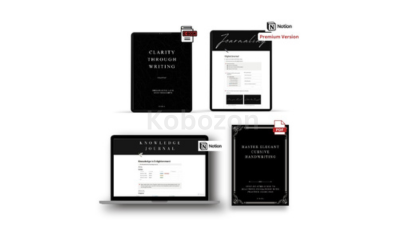 All in One Ultimate Bundle: Guides, Templates and Exercises by Selfeduni
1 × $23,00
All in One Ultimate Bundle: Guides, Templates and Exercises by Selfeduni
1 × $23,00 -
×
 History Greatest Voyages of Exploration By Vejas Gabriel Liulevicius
1 × $5,00
History Greatest Voyages of Exploration By Vejas Gabriel Liulevicius
1 × $5,00 -
×
 Cost Reducing Strategies and Techniques By Daniel Pereira - The Business Model Analyst
1 × $5,00
Cost Reducing Strategies and Techniques By Daniel Pereira - The Business Model Analyst
1 × $5,00 -
×
 Beginner Forex Mastery Course By Harrison Uwah - MHU FX Academy
1 × $78,00
Beginner Forex Mastery Course By Harrison Uwah - MHU FX Academy
1 × $78,00 -
×
 3D LUT Profile Psychedelic Shores by Earth Oliver and Sef McCullough
1 × $8,00
3D LUT Profile Psychedelic Shores by Earth Oliver and Sef McCullough
1 × $8,00 -
×
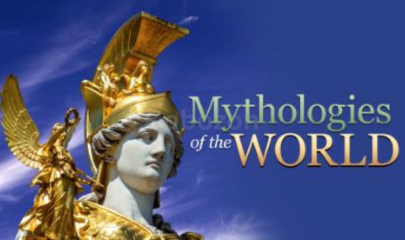 Great Mythologies of the World By Grant Voth, Kathryn McClymond, Julius Bailey & Robert Andre LaFleur
1 × $5,00
Great Mythologies of the World By Grant Voth, Kathryn McClymond, Julius Bailey & Robert Andre LaFleur
1 × $5,00 -
×
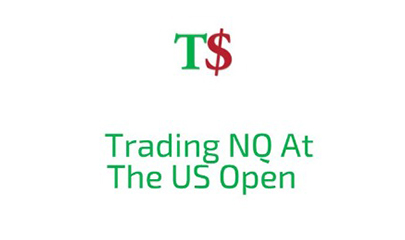 Trading NQ At The US Open By TradeSmart
1 × $10,00
Trading NQ At The US Open By TradeSmart
1 × $10,00 -
×
 Understanding the Dark Side of Human Nature By Daniel Breyer
1 × $5,00
Understanding the Dark Side of Human Nature By Daniel Breyer
1 × $5,00 -
×
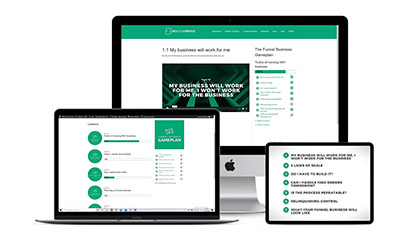 Seven Figure Freedom By Michael Killen
1 × $62,00
Seven Figure Freedom By Michael Killen
1 × $62,00 -
×
 Oral Sex Mastery by Pleasure Mechanics
1 × $69,00
Oral Sex Mastery by Pleasure Mechanics
1 × $69,00
Dating Decoded by David Tian
$5,00
Dating Decoded by David Tian – Instant Download!
Let’s embark on a thrilling journey to uncover extraordinary insights that ignite your curiosity and transform your understanding

Dating Decoded by David Tian
Overview

Dating Decoded by David Tian
In an era where dating often resembles a complex puzzle, David Tian, Ph.D., steps in as an insightful guide, helping individuals decode the intricate dynamics of modern relationships. His approach blends comprehensive psychological insights and relatable strategies, offering a refreshing perspective on dating in the contemporary culture. With the rise of online dating platforms and shifting societal expectations surrounding relationships, many find themselves navigating uncertainty and confusion regarding their dating intentions and outcomes. Tian’s teachings offer clarity, focusing on understanding one’s motivations, the nature of emotional connections, and the impact of communication within romantic interactions.
The essence of dating is not merely about finding a partner but understanding oneself deeply. Through his various digital platforms, including podcasts, courses, and workshops, Tian emphasizes self-awareness and emotional intelligence as the bedrocks of successful dating. Delving into topics like casual versus serious relationships, recognizing red flags, and effective communication, he provides comprehensive tools that empower individuals to pursue meaningful connections while safeguarding their emotional well-being. This article explores Tian’s philosophy, dissecting common dating scenarios, intentions, and the personal growth necessary to foster healthier relationships.
Understanding Dating Intentions
Before embarking on the journey of dating, it’s essential to grasp your intentions. Dating does not come with a one-size-fits-all approach; different individuals seek different outcomes, from casual flings to lifelong commitments. This understanding serves as a compass, guiding how one interacts with potential partners. By clarifying intentions, individuals can align their expectations accordingly, fostering transparency in the dating process.
In many ways, dating intentions can be likened to setting a destination on a GPS before embarking on a road trip. If a driver inputs “beach” but ends up following directions to a mountain, dissatisfaction will ensue. Similarly, when one’s dating intentions are unclear, confusion and potential heartbreak often follow. Research supports this notion; a study by Tinder found that perceived attractiveness and the attributes highlighted in dating profiles significantly sway dating outcomes. The findings underscore that having the right intentions sets the stage for positive relationship dynamics.
Comparison of Dating Intentions
Here’s a quick look at differing dating intentions and general motivations:
| **Dating Intention** | **Motivation** | **Expected Outcome** |
| Casual Dating | Enjoyment, seeking fun | Short-term connection |
| Serious Relationship | Long-term companionship, emotional support | Commitment, lifetime partnership |
| Friendship First | Building a strong emotional connection before romance | Organic evolution into a relationship |
| Healing/Recovery | Emotional validation after a breakup | Moving on and personal growth |
| Exploration | Discovering oneself through various experiences | Insights into what one values in dating |
From this table, it becomes clear that the distinctions between dating intentions guide individuals in their interactions, expectations, and emotional investments. Thus, establishing clarity around one’s intentions is paramount.
Practical Examples
Engaging in self-reflection and open communication about your dating intentions is crucial. For instance, if you’re seeking a casual relationship, being forthright about this can save both you and your potential partner time and emotional investment. Similarly, someone looking for a serious commitment should communicate these desires early on. This sets a constructive foundation, steering conversations towards shared values and future aspirations. Therefore, defining personal intentions serves as a roadmap, steering through the complexities of modern dating with a clearer head and heart.
Exploring Intent vs. Outcome
Understanding the difference between dating intentions and the outcomes that manifest from these intentions is crucial for developing healthy interpersonal relationships. Intentions represent our desires and motivations when we enter the dating scene, while outcomes are the actual results we experience sometimes aligned with our expectations, other times not.
The metaphor of planting a garden helps illustrate this distinction. If a gardener sows seeds (intentions) without considering the soil type, climate, or season (outcomes), they might end up with a garden that flourishes or withers. In dating, the consequences of our intentions might mirror this unpredictability. Unresolved emotional issues or mismatched expectations can diverge drastically from the hopeful intentions we had at the outset.
Recent studies reveal that over 60% of individuals report experiencing cognitive dissonance when their dating intentions do not align with their outcomes, leading to stress and dissatisfaction. David Tian emphasizes this misalignment in his teachings, highlighting how past traumas and unmet needs often cloud one’s sincere intentions, ultimately creating confusion in dating scenarios.
Strategies to Navigate Intent vs. Outcome
- Self-Reflection: Regularly assess your dating intentions. Journaling can be an effective way to articulate your desires and identify any fears or emotional patterns influencing your outcomes.
- Open Communication: Initiate conversations with partners about your dating expectations. Transparency fosters understanding and reduces the likelihood of cognitive dissonance.
- Evaluate Emotional Responses: Be attentive to how you feel during interactions. Discomfort may indicate that your intentions do not align with your partner’s expectations.
- Flexibility: Embrace the possibility of adapting your intentions based on evolving feelings or experiences during the dating process. Sometimes, shifting from a casual to a serious intention (or vice versa) can occur naturally through sincere connection.
Ultimately, integrating a deeper understanding of dating intentions with tangible emotional readiness allows individuals to navigate the complexities of modern romance more effectively. David Tian’s framework advocates for this integration, fostering both self-growth and enriching relationship dynamics.
Differentiating Serious Relationships from Casual Encounters
One of the most critical distinctions in today’s dating landscape is understanding the difference between serious relationships and casual encounters. This differentiation impacts how individuals approach dating, communicate with partners, and invest emotionally. Serious relationships typically entail a commitment characterized by emotional vulnerability, trust, and common goals, while casual encounters focus more on physical attraction and short-lived enjoyment.
To illustrate, think of serious relationships as building a house. It requires a solid foundation (trust), reliable materials (shared values), and ongoing maintenance (effective communication). In contrast, casual encounters resemble temporary structures quick to erect and just as easy to dismantle, often providing little in the way of lasting emotional support.
Key Comparisons in Relationships
| **Aspects** | **Serious Relationships** | **Casual Encounters** |
| **Commitment Level** | High | Low |
| **Emotional Involvement** | Deep vulnerability and support | Superficial, often physical |
| **Future Plans** | Often discussed and aligned | Rarely considered |
| **Communication Openess** | High, involving both partners | Limited, focused on the moment |
| **Shared Interests and Values** | Strong alignment for mutual growth | Minimal to no shared values |
Understanding these distinctions allows individuals to clarify their expectations and navigate dating situations more effectively. For example, if two individuals enter the same relationship intending for something entirely different a serious commitment versus a casual fling the potential for disappointment and heartbreak looms large.
Moreover, societal influences play a pivotal role in how relationships are formed. David Tian emphasizes that awareness of these influences helps individuals align their emotional readiness with their dating practices, ultimately leading to healthier connections. Understanding the nuances between serious relationships and casual encounters can shield individuals from emotional turmoil while informing their dating approach.
Recognizing Red Flags in Dating Intentions
Recognizing red flags is crucial when assessing a dating partner’s intentions. Red flags act as warning signals indicating a potential mismatch between what one wants and what the other person may offer. They can manifest as inconsistencies in behavior, reluctance to communicate openly about relational goals, or signs of emotional unavailability.
To further contextualize red flags, consider them akin to traffic signals. Just as a red light urges you to stop and assess your surroundings before proceeding, red flags prompt you to pause and evaluate your dating interactions significantly. Ignoring these warnings can lead to emotional distress and misalignment in expectations.
Some common red flags to watch for include:
| **Red Flag** | **What It May Indicate** |
| **Inconsistent Communication** | Lack of genuine interest or commitment |
| **Reluctance to Discuss Feelings** | Emotional unavailability or avoidance |
| **Possessive or Controlling Behaviors** | Insecurity or unhealthy attachment styles |
| **Frequent Mention of Casualness** | Potential lack of interest in deeper connection |
| **Prioritization of Physical Aspects** | Focus on physical rather than emotional connection |
Addressing these red flags requires self-awareness and honest conversations. David Tian emphasizes the importance of being transparent about personal needs and intentions when dating. Engaging in candid discussions regarding feelings and expectations not only assists in recognizing potential misalignments but also fosters healthier relationship dynamics.
In conclusion, cultivating the ability to discern between genuine intentions and deceptive behaviors, along with being vigilant about red flags, prepares individuals for more fulfilling dating experiences. Through intentional engagement and purposeful communication, individuals can navigate the dating landscape with resilience and clarity.
Strategies for Identifying Authentic Intent
When seeking to discern authentic dating intentions, it’s essential to adopt intentional strategies that facilitate deeper connection and understanding. Here are several actionable tactics to consider:
Tactics to Identify Authentic Intent
- Ask Open-Ended Questions: Engage in meaningful conversation to gauge true intentions. Queries like “What are you currently looking for in a partner?” can shed light on their dating mindset.
- Observe Consistency in Communication: Pay attention to whether their stated intentions remain consistent over time. Authentic individuals reinforce their intentions through stable, congruent messaging.
- Engage in Conversations About Relationships: Evaluate their perspectives on relationships gradually. Seeking insights on past relationships and learned lessons reveals their readiness for intimacy.
- Assess Emotional Availability: Investigate how they handle emotions and challenges by discussing how they cope with stress or disappointment. Openness indicates genuine intention, while avoidance may signal issues with commitment.
- Discuss Future Aspirations: Conversations addressing life goals, desired lifestyles, and partner roles can provide critical insight into whether both individuals are on the same page.
Questions to Uncover Dating Goals
- “What do you envision in an ideal relationship?”
- This encourages them to articulate their objectives, providing insight into their approach to connection.
- “How would you describe your ideal partner?”
- Understanding their expectations helps assess whether their vision aligns with yours.
- “What are your core values, and how do they shape your relationships?”
- Core values can reveal significant compatibility factors.
- “How do you see dating evolving for you?”
- This question can uncover their long-term intentions and willingness to cultivate deeper connections.
By employing these strategies, individuals can cultivate a more nuanced understanding of their dating interactions, leading to enhanced clarity around intentions. David Tian encourages individuals to approach dating with both open hearts and discerning minds, ultimately fostering relationships that resonate with authenticity and mutual respect.
Importance of Communication in Dating
Effective communication is the cornerstone of building successful relationships. Clear communication fosters understanding, establishes trust, and allows partners to navigate the complexities inherent in dating. Without open lines of dialogue, misunderstandings flourish, evoking feelings of frustration and misinterpretation.
One can liken communication to the thread weaving together the fabric of a relationship. Loose threads lead to a weak structure, while tightly woven fibers create a robust tapestry one that can weather time and strain. Similarly, rich communication nurtures intimate connections, allowing partners to navigate their differences collaboratively.
Key Aspects of Communication in Dating
| **Aspects** | **Description** |
| **Clarity** | Ensuring both partners understand one another’s needs |
| **Active Listening** | Engaging thoughtfully with another’s feelings and thoughts |
| **Expressing Intentions** | Being upfront about one’s own needs to align expectations |
| **Navigating Differences** | Recognizing and valuing individual communication styles |
| **Conflict Resolution** | Using respectful dialogue to solve disagreements |
Strategies for Effective Communication
- Practice Active Listening: This requires more than simply hearing engage fully, reflect what the other person is saying, and validate their emotions. This allows for a deeper understanding and shows genuine care.
- Establish Boundaries: Make sure to share personal boundaries early on, allowing partners to understand limits and expectations.
- Be Vulnerable: Sharing fears, dreams, and insecurities fosters emotional closeness and encourages reciprocal vulnerability.
- Use Technology Wisely: In the digital age, communication can often fall flat. Don’t rely solely on messaging apps opt for video calls or in-person meetings when discussing more profound feelings.
David Tian emphasizes that understanding gender communication differences can further enhance relational dynamics. Men and women might exhibit distinct communication styles recognizing these variances can help in mitigating misunderstandings.
Ultimately, the importance of communication in dating cannot be overstated. By developing robust, transparent lines of dialogue, partners can ensure that their mutual intentions, desires, and expectations align perfectly, thus strengthening their bonds in the long run.
Assessing Compatibility
Finding compatibility in dating is akin to locating a favorite puzzle piece that fits perfectly. Shared interests, values, attitudes, and relationship goals contribute significantly to this compatibility, transcending mere attraction.
Assessment of compatibility allows individuals to ascertain whether they are aligned with potential partners. Without such assessments, partners might rush into relationships that may seem promising initially but are ultimately mismatched in critical ways.
Factors of Compatibility Assessment
| **Compatibility Factor** | **Importance** |
| **Shared Values** | Forms the foundation of mutual understanding and respect |
| **Life Goals** | Ensures that both partners are working towards common objectives |
| **Emotional Intelligence** | Develops the ability to navigate complex feelings |
| **Communication Styles** | Recognizes and respects individual approaches to dialogue |
| **Lifestyle Preferences** | Assures that partners are aligned in day-to-day living |
Strategies for Evaluating Compatibility
- Engage in Deep Conversations: Explore crucial topics such as family values, life ambitions, and how both partners visualize their futures.
- Joint Activities: Participating in shared hobbies or activities can reveal how well you work together, assess compatibility in relationships beyond discussions.
- Reflect on Past Relationships: Discuss past relationship experiences openly, analyzing what has worked and what hasn’t this can provide insight into each person’s growth and evolving desires.
- Trial and Error: Sometimes, direct experience is the best teacher. Engaging in small projects together can expose challenges in compatibility within lighter contexts.
In conclusion, assessing compatibility prior to entering a deeper connection helps mitigate future conflicts, ensuring that partners are on the same journey towards shared aspirations and relational growth. Both David Tian’s work and relational frameworks emphasize the significant role emotional intelligence plays, enabling partners to foster an enriching and communicative environment.
Evaluating Shared Values and Goals
Evaluating shared values and goals is a fundamental aspect of building a solid relationship foundation. Core values act as guiding principles, shaping how individuals approach conflict resolution, communication, and everyday interactions.
When two partners prioritize the same ideals, it fosters harmony and mutual respect, much like a good team working harmoniously towards a shared objective. Conversely, divergent values may lead to conflict, disappointment, and relational instability.
Importance of Shared Values
| **Shared Value** | **Impact on Relationship** |
| **Trust** | Builds an environment where partners feel secure |
| **Respect** | Fosters a culture of valuing each other’s opinions |
| **Loyalty** | Ensures that commitment remains unshakeable |
| **Open Communication** | Encourages transparency and understanding |
| **Growth** | Motivates both partners to support individual development |
Strategies for Cultivating Shared Values
- Conversations About Values: Engage in discussions that allow both partners to express what matters most to them. Recognize overlapping values while addressing discrepancies respectfully.
- Create a Values Statement: Jointly crafting a values statement can serve as a touchstone during challenging times to remind both partners of their core principles.
- Respect Individuality while Finding Common Ground: Celebrate each partner’s unique values and support growth in diverse areas while aligning on essential shared values.
- Set Shared Goals: Discuss what both seek to achieve together this can include personal ambitions but extend to relational goals as well, such as traveling or starting a family.
By consistently evaluating shared values and goals, individuals can maintain alignment throughout their relational journey, reinforcing their bonds over time. David Tian emphasizes the vitality of this alignment in creating emotionally fulfilling relationships that endure.
The Role of Emotional Intelligence in Relationships
Emotional intelligence plays a crucial role in relationship dynamics, providing individuals with the needed tools to navigate complex emotional landscapes. Understanding one’s emotions and recognizing those of others is essential for fostering healthy connections.
The significance of emotional intelligence can be likened to the captain of a ship sensing changes in weather and adjusting the sails accordingly capable of navigating turbulent seas and safe harbors alike. Similarly, emotionally intelligent individuals can adapt to relational ups and downs with greater resilience.
Key Components of Emotional Intelligence
| **Component** | **Definition and Importance** |
| **Self-Awareness** | Understanding one’s emotions and triggers |
| **Self-Regulation** | Managing emotional responses to facilitate communication |
| **Empathy** | Recognizing and validating another’s feelings |
| **Social Skills** | Navigating interpersonal relationships effectively |
| **Motivation** | Driving oneself towards personal and relational goals |
Strategies for Enhancing Emotional Intelligence
- Practice Mindfulness: Being present can help individuals recognize their emotional states, creating a pathway for better self-regulation.
- Seek Feedback: Engaging in discussions about how one communicates can uncover blind spots in emotional perception, leading to growth.
- Empathetic Listening: Focus on understanding the emotions behind the words during conversations. This cultivates an environment of mutual understanding.
- Conflict Resolution Skills: Equip oneself with techniques for resolving conflicts while maintaining consideration for both partners’ emotions.
In summary, emotional intelligence is a foundational element that enhances relationship dynamics, urging individuals towards greater understanding and connection. David Tian emphasizes that cultivating emotional intelligence can transform relationships by enabling individuals to navigate challenges with compassion.
Building Healthy Relationships
Healthy relationships require ongoing effort, nurturing trust, and ensuring mutual respect. They embody a partnership where both individuals grow and thrive together, cultivating deeper emotional connections and fulfillment.
To illustrate this, consider a relationship as a garden. It demands planting seeds of love, watering with communication, and weeding out negativity to flourish over time. Both partners must invest in this metaphorical garden, creating an environment conducive to growth.
Key Components of Healthy Relationships
| **Component** | **Description** |
| **Trust** | The gravitational force holding partners closer together |
| **Effective Communication** | The channel through which needs, desires, and issues are shared |
| **Emotional Support** | Creating a safe space for vulnerability |
| **Equality** | Mutual respect and shared decision-making |
| **Commitment** | Adhering to the growth and well-being of the relationship |
Strategies for Promoting Healthy Relationships
- Open Dialogue: Establishing regular check-ins to discuss feelings, changes, and expectations fosters clarity and emotional intimacy.
- Mutual Respect: Recognizing each partner’s autonomy within the relationship encourages personal growth while reinforcing the bond.
- Quality Time: Consistent quality time strengthens relationships. Engage in shared activities and experiences that deepen the connection.
- Forgiveness and Renewal: Understand that conflicts will arise. Handling them gracefully while offering forgiveness creates resilience within the relationship.
Through these efforts, healthy relationships thrive, reflecting the commitment both partners have to sustaining a fulfilling and supportive partnership. David Tian’s principles reiterate the interconnectedness between healthy interpersonal dynamics and emotional awareness, guiding individuals towards enriching relational experiences.
Establishing Trust and Safety
Trust is the cornerstone of healthy relationships, and establishing it requires vulnerability, transparency, and open communication. A landscape devoid of trust can lead to distress, insecurity, and eventual breakdowns in relationships.
Establishing safety can be likened to constructing a sturdy bridge. Only when both partners feel secure within the relationship can they traverse the bridge toward deeper emotional connection without fear of falling. David Tian highlights the necessity of establishing such a secure environment as a precursor to intimacy.
Elements of Establishing Trust
| **Element** | **Description** |
| **Transparency** | Sharing thoughts and feelings openly |
| **Consistency** | Maintaining reliability in actions and words |
| **Vulnerability** | Willingness to share personal feelings |
| **Empathy** | Understanding and validating each other’s emotions |
| **Respect** | Honoring boundaries and personal autonomy |
Strategies for Establishing Trust and Safety
- Be Transparent: Encourage honest sharing of feelings, thoughts, and experiences without fear of judgment.
- Honor Commitments: Follow through on promises and demonstrate reliability to build credibility over time.
- Practice Vulnerability: Share personal insecurities and thoughts to invite the same openness from partners.
- Create Emotional Safety: Build a non-judgmental space where both partners can express fears, thoughts, and needs freely without retaliation.
In conclusion, fostering trust and safety enriches relationships beyond surface-level attractions. The tools mentioned profoundly help establish a resilient partnership where both partners can fully engage in emotional intimacy. David Tian’s strategies provide guidance in cultivating this critical aspect of relational dynamics, ensuring individuals flourish together.
Navigating Vulnerability in Dating
Navigating vulnerability in dating is both challenging and essential for establishing meaningful connections. Vulnerability involves exposing one’s emotions and fears, which can often feel daunting. However, overcoming this fear is crucial for developing deep and lasting relationships.
Consider vulnerability as the soil nourishing a plant. Without it, emotional connections cease to grow, leaving relationships shallow and ultimately unfulfilling. David Tian argues that allowing oneself to be vulnerable is not a weakness but a critical strength that opens the avenue for intimacy.
Aspects of Vulnerability in Relationships
| **Aspect** | **Importance** |
| **Emotional Depth** | Fosters deeper connections and empathy |
| **Trust Building** | Establishes a safe environment for sharing |
| **Conflict Resolution** | Reduces defensiveness during disagreements |
| **Intimacy Enhancement** | Strengthens emotional bonds and compatibility |
Strategies for Embracing Vulnerability
- Emotional Regulation: Develop techniques such as mindfulness to manage emotional responses effectively.
- Communicate Needs Clearly: Practice articulating feelings and expectations to reinforce emotional clarity.
- Normalize Vulnerability: Recognize that vulnerability is a shared experience it’s typical to feel apprehensive.
- Practice Self-Compassion: Be kind to yourself when facing vulnerabilities; practicing resilience is key to building emotional strength.
By engaging in these practices, individuals can foster an environment where vulnerability is embraced, ultimately leading to deeper connections. David Tian’s philosophy emphasizes that vulnerability serves as a gateway to intimacy, enabling partners to connect more authentically and joyfully.
Reviewing Theories and Concepts
Exploring dating intentions requires delving into various theories and concepts that elucidate relationship dynamics. Understanding these frameworks helps individuals navigate their dating experiences with clarity and intent.
Significant Theories in Relationship Dynamics
- Attachment Theory: Based on early relationships impacting adult bonds, it helps explain how attachment styles influence dating behaviors and emotional connections.
- Social Exchange Theory: This outlines the perceived benefits and costs in relationships, informing how partners assess their interactions.
- Maslow’s Hierarchy of Needs: Understanding that relationships can fulfill various needs from basic companionship to complex emotional support encourages individuals to seek alignment in their relational goals.
Application of Concepts in Real-Life Scenarios
- Understanding Attachment Styles: For example, an individual with a secure attachment style may approach dating confidently, while someone with an anxious attachment style might struggle with fears of abandonment.
- Navigating Social Exchange Dynamics: Recognizing when relational costs outweigh benefits can prompt needed reflections on the sustainability and fulfillment of a relationship.
- Applying Maslow’s Framework: Partnerships that address each other’s needs holistically can create environments where love flourishes and personal growth thrives.
By understanding and applying these theories to their dating experiences, individuals can cultivate a more profound comprehension of their own behaviors, motivations, and relational dynamics.
Examining David Tian’s Views on Dating Dynamics
David Tian offers insightful analyses regarding dating dynamics, advocating for deeper emotional intelligence and self-awareness in romantic pursuits. His work emphasizes striking a balance between authenticity and emotional availability, allowing partners to connect on a deeper level.
Key Insights from Tian’s Work
- Personal Growth: Tian emphasizes that individuals should view dating as a journey of self-discovery, where exploring one’s intentions allows for meaningful connections with others.
- Authentic Connections: He posits that forming genuine bonds require individuals to present their true selves. Many traditional dating methods often lead individuals to mask their true identities, which can hinder sustainable partnerships.
- Emotional Intelligence: Emotional mastery, a recurring theme in Tian’s teachings, is pivotal in establishing trust and increasing personal attractiveness within the dating landscape.
Practices from Tian’s Approach
- Self-Discovery Exercises: Engaging in thoughtful assessments leads to a better understanding of personal needs and relationship goals.
- Mindfulness in Interactions: Practicing mindfulness enhances emotional presence during interactions, improving connection quality.
- Pursuing Authenticity: Encouragement to share personal stories and vulnerabilities creates pathways for lasting and intimate partnerships.
Tian’s insights challenge individuals to embrace deep authenticity while exploring dating. His work encourages moving beyond surface-level conversations to instill emotional depth and meaningful connections.
Critique of Traditional Dating Advice
David Tian’s critique of traditional dating advice sheds light on its often overly simplistic and transactional nature. The conventional frameworks usually emphasize techniques rather than emotional intelligence and genuine connection, potentially leading individuals astray.
Key Critiques of Traditional Approaches
- Superficial Focus: Popular advice often centers on external traits appearance or social status neglecting the importance of genuine connection and emotional depth.
- Scripted Techniques: Many dating strategies rely on calculated lines or behaviors, leading to disconnections rather than authentic engagements.
- Neglect of Emotional Intelligence: Traditional advice often overlooks how emotional awareness and vulnerability enhance the dating experience.
Alternative Insights from Tian’s Philosophy
- Emphasizing Authentic Connections: Encouraging friendship and shared experiences fosters deeper relationships than mechanistic approaches.
- Valuing Emotional Engagement: Promoting emotional intelligence leads to richer interactions that prioritize substance over surface-level attractions.
- Encouragement of Self-Reflection: Advocating for personal understanding creates pathways for attracting partners aligned with genuine desires.
David Tian’s critique of traditional dating advice champions a profound reevaluation of how individuals approach relationships. By placing authenticity, emotional awareness, and connection at the forefront, he offers a more emotionally intelligent framework for dating that resonates deeply with contemporary needs.
Final Thoughts on Dating Intentions
David Tian asserts that understanding dating intentions is imperative for fostering genuine connections and making informed relationship choices. Clarity regarding one’s intent can significantly influence the dynamics of romantic encounters, guiding individuals toward more fulfilling and meaningful relationships.
Key Takeaways
- Self-Awareness: Taking the time to reflect on emotional needs and dating desires creates a solid foundation for navigating intentions successfully.
- Transparent Communication: Engaging in open dialogue clarifies expectations and reduces the potential for heartache and confusion.
- Nurturing Authentic Connections: Seeking depth over superficial interactions fosters relationships grounded in emotional intimacy.
- Continuous Growth: Embracing a growth mindset allows individuals to view dating as an opportunity for learning and self-discovery.
- Emotional Intelligence: Understanding and regulating emotions enhances relational dynamics, leading to stronger, more resilient partnerships.
In summary, David Tian’s philosophy advocates for intentional dating rooted in self-exploration, authentic communication, and emotional intelligence. By actively pursuing clarity around dating intentions, individuals can guide their interactions toward deeper, more meaningful connections that satisfy both personal and relational aspirations.
Summary of Key Insights
David Tian’s work on dating dynamics highlights several critical insights pertaining to dating intentions and relationships that resonate profoundly with contemporary dating culture. Here’s a summarization of the key reflections:
Consolidated Insights
- Intentions Matter: Clear dating intentions act as a rudder, guiding interactions and aligning expectations.
- Self-Awareness is Essential: Knowing oneself and one’s desires enhances both confidence and effectiveness in dating scenarios.
- Communication is Key: Open dialogue establishes trust, reduces misunderstandings, and builds emotional intimacy.
- Emotional Intelligence Improves Dating Success: Couples who develop emotional awareness and learn to navigate their feelings build deeper connections.
- Evaluate Compatibility and Shared Values: Understanding core values provides a foundation for mutual respect and lasting satisfaction.
By distilling these insights, individuals can enhance their dating experiences and relationships, cultivating connections grounded in honesty, depth, and genuine emotional engagement.
Future Implications for Dating Practices
The future of dating practices will undoubtedly continue evolving, influenced by changes in societal norms, technological advancements, and shifting expectations regarding relationships. David Tian’s work provides a roadmap to navigate these changes with awareness and intention.
Predictions and Recommendations
- Emphasis on Emotional Intelligence: As individuals seek deeper connections, cultivating emotional intelligence will become increasingly essential for meaningful interactions.
- Balancing Technology and Authenticity: While dating apps provide opportunities to connect, shifting focus towards genuine conversations and emotional engagement will separate lasting relationships from fleeting encounters.
- Navigating Modern Challenges: As societal norms surrounding relationships change, embracing flexibility and open-mindedness will help individuals thrive amidst evolving expectations.
- Prioritizing Misunderstanding Avoidance: By continuing to foster clear communication channels, individuals can reduce cognitive dissonance and build commitment from the outset.
- Encouragement of Self-Discovery: Individuals will increasingly prioritize personal growth and reflection in their dating lives, thus attracting partners who share similar ideals.
In summary, the future of dating practices lies in embracing emotional growth, authenticity, and clear communication as pivotal tools for navigating the complexities of modern romance. David Tian’s explorations offer valuable insights for individuals seeking deeper, more impactful connections in their dating journeys.
Conclusion
In navigating the intricate maze of modern dating, David Tian’s insights emerge as an essential guide for fostering healthier relationship dynamics. By emphasizing emotional intelligence, authentic communication, and self-awareness, his approach encourages individuals to approach dating with clarity and intention.
Understanding dating intentions provides a roadmap for individuals to align their hopes with their desires, enabling them to navigate the complexities of romantic contexts effectively. As individuals engage in self-discovery and open dialogue with partners, they pave the way for deeper, more meaningful connections.
Furthermore, recognizing red flags and maintaining a focus on shared values promotes emotional safety and mutual respect, which are vital for cultivating lasting partnerships. By integrating the learnings from Tian’s teachings, individuals can embrace a transformative journey through dating, enriching their lives with the profound gifts of genuine connection and emotional fulfillment.
Ultimately, the journey of dating can be challenging yet rewarding. By unearthing one’s true intentions, fostering transparent communication, and embracing vulnerability, individuals can embark on this journey toward authentic relationships that flourish over time. David Tian’s teachings act as a beacon, illuminating the path toward deeper connections and emotional growth within the sphere of dating.
Frequently Asked Questions:
Innovation in Business Models: We use a group purchase approach that enables users to split expenses and get discounted access to well-liked courses. Despite worries regarding distribution strategies from content creators, this strategy helps people with low incomes.
Legal Aspects to Take into Account: Our operations’ legality entails several intricate considerations. There are no explicit resale restrictions mentioned at the time of purchase, even though we do not have the course developers’ express consent to redistribute their content. This uncertainty gives us the chance to offer reasonably priced instructional materials.
Quality Control: We make certain that every course resource we buy is the exact same as what the authors themselves provide. It’s crucial to realize, nevertheless, that we are not authorized suppliers. Therefore, the following are not included in our offerings: – Live coaching sessions or calls with the course author.
– Entry to groups or portals that are only available to authors.
– Participation in closed forums.
– Straightforward email assistance from the writer or their group.
Our goal is to lower the barrier to education by providing these courses on our own, without the official channels’ premium services. We value your comprehension of our distinct methodology.
Be the first to review “Dating Decoded by David Tian” Cancel reply
You must be logged in to post a review.

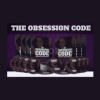

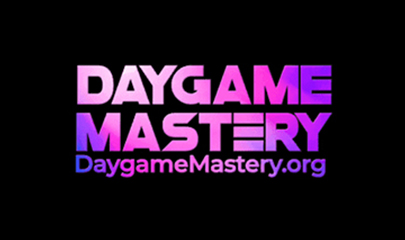


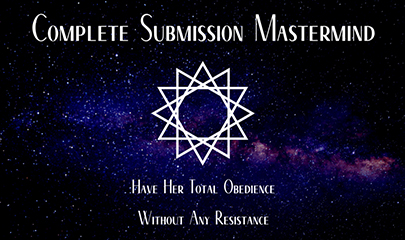
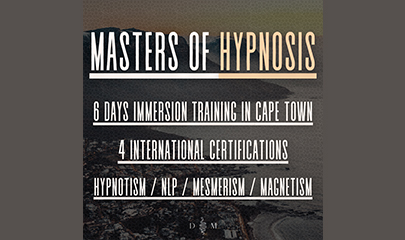









Reviews
There are no reviews yet.